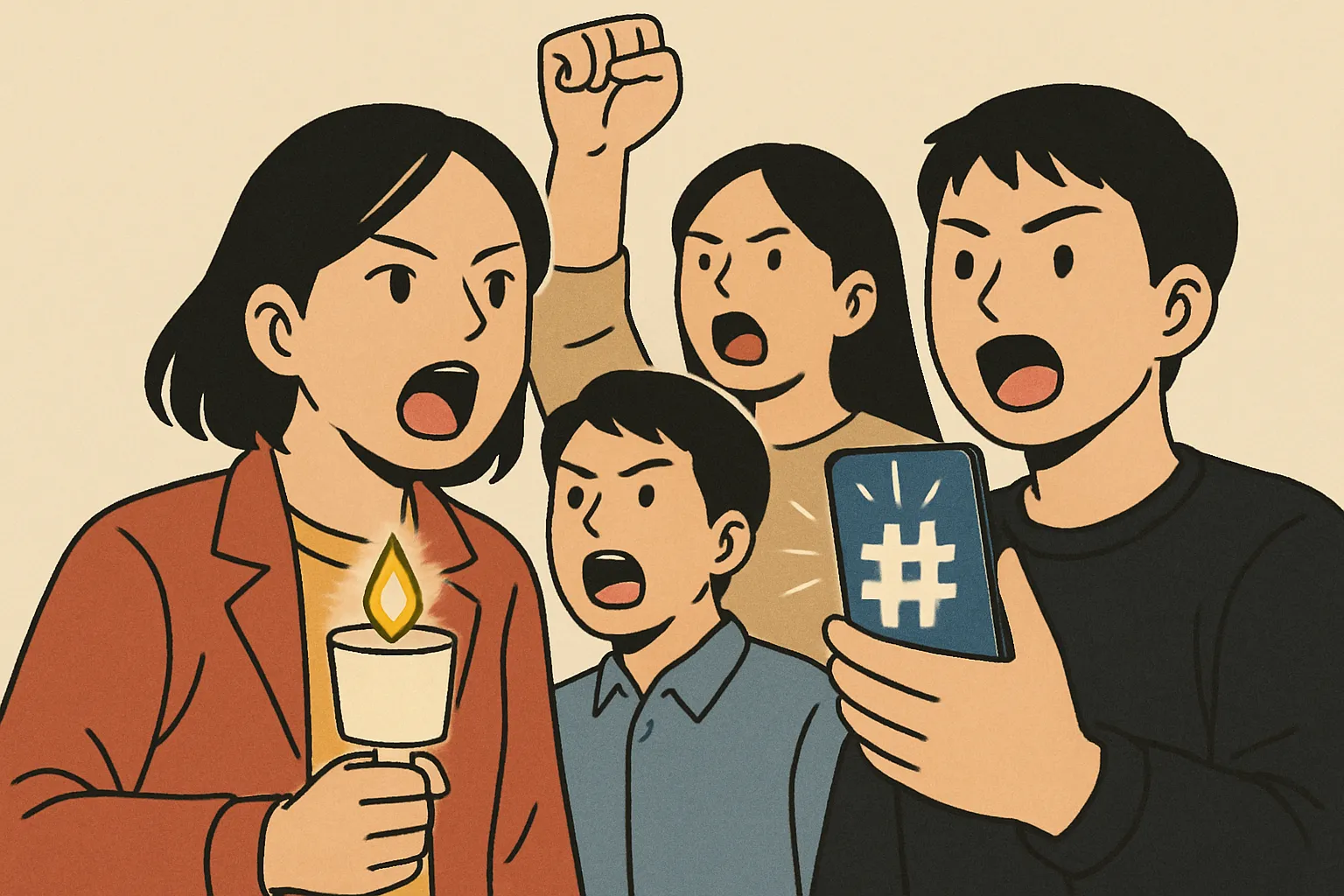Pay Like a Pro in Korea: “Keep the Change”!
Hello! Welcome to [Maeil Hangeul], here to upgrade your Korean skills!
Have you ever paid for something with cash and didn’t want to wait for the small coins back? Today, we’re going to learn a simple but very cool Korean phrase that will make you sound like a local: “Keep the change.”
These days in Korea, visiting small, independent cafes with unique drinks is a huge trend. In these friendly places, knowing how to say “Keep the change” is a wonderful way to show a small kindness. Let’s learn how!
Key Expressions You Need to Know
Here are the essential building blocks for today’s phrase.
- 1. 잔돈 (Jandon)
- Pronunciation [Romanized]: jan-don
- English Meaning: Small change / Coins
- Detailed Explanation: This word literally means “leftover money.” It refers to the small bills and coins you get back after paying for something. It’s a very common word you’ll hear at any store!
- 2. 괜찮아요 (Gwaenchanayo)
- Pronunciation [Romanized]: gwaen-cha-na-yo
- English Meaning: It’s okay / I’m fine / No, thank you.
- Detailed Explanation: This is a magical, all-purpose phrase in Korean! You can use it to say you’re okay, or to politely refuse something. In our case today, it means “It’s okay, I don’t need it.”
- 3. 잔돈은 괜찮아요 (Jandon-eun gwaenchanayo)
- Pronunciation [Romanized]: jan-don-eun gwaen-cha-na-yo
- English Meaning: Keep the change. (Literally: “The small change is okay.”)
- Detailed Explanation: This is the main phrase! By combining 잔돈 (jandon) and 괜찮아요 (gwaenchanayo), you are politely telling the cashier that you don’t need the change back. It’s a very kind and natural-sounding expression.
Example Dialogue
Let’s see how this works in a real conversation! Imagine you are at a popular cafe in Seoul, buying a trendy croffle.
- A: (You, the customer)
이 크로플 얼마예요? (i keu-ro-peul eol-ma-ye-yo?)
How much is this croffle? -
B: (The cashier)
구천오백 원입니다. (gu-cheon-o-baek won-im-ni-da.)
It’s 9,500 won. -
A: (You hand over a 10,000 won bill)
여기요. (yeo-gi-yo.)
Here you go. -
B: (The cashier is about to give you 500 won back)
네, 잠시만요… (ne, jam-si-man-yo…)
Okay, just a moment… -
A: (You smile and say the magic phrase!)
아, 잔돈은 괜찮아요. (a, jan-don-eun gwaen-chan-a-yo.)
Oh, it’s okay, you can keep the change. -
B: (The cashier smiles back)
정말요? 감사합니다! (jeong-mal-yo? gam-sa-ham-ni-da!)
Really? Thank you so much!
Culture Tip & Trend Deep Dive
To Tip or Not to Tip in Korea?
This is super important! Korea does not have a tipping culture. You are not expected to tip at restaurants, cafes, or for any service.
So, why learn “Keep the change”?
Saying “잔돈은 괜찮아요” is not considered a “tip.” It’s seen as a small, kind gesture of goodwill, especially when the change is a very small amount (like 100 or 500 won). It says, “Don’t worry about the small coins, it’s okay!”
Nowadays, most Koreans use credit cards or mobile payments, so paying with cash is less common. This makes your kind gesture even more special when you do use cash! Using this phrase at a small, family-owned shop or your favorite local cafe will surely leave a warm impression. You’ll look like a Korean local, not just a tourist!
Let’s Review and Practice!
Great job today! You learned how to say “Keep the change” in Korean and a little about Korea’s tipping culture.
Now, let’s test your knowledge!
1. Fill in the blank:
You want to say, “The small change is okay.” What is the Korean word for “small change”?
_______은/는 괜찮아요.
2. Quick Quiz (True/False):
In Korea, you should always leave a 15% tip at restaurants. (T/F)
You’re doing amazing! Why not try using the phrase we learned today?
Leave a comment below telling us where you would want to use “잔돈은 괜찮아요”! See you next time






